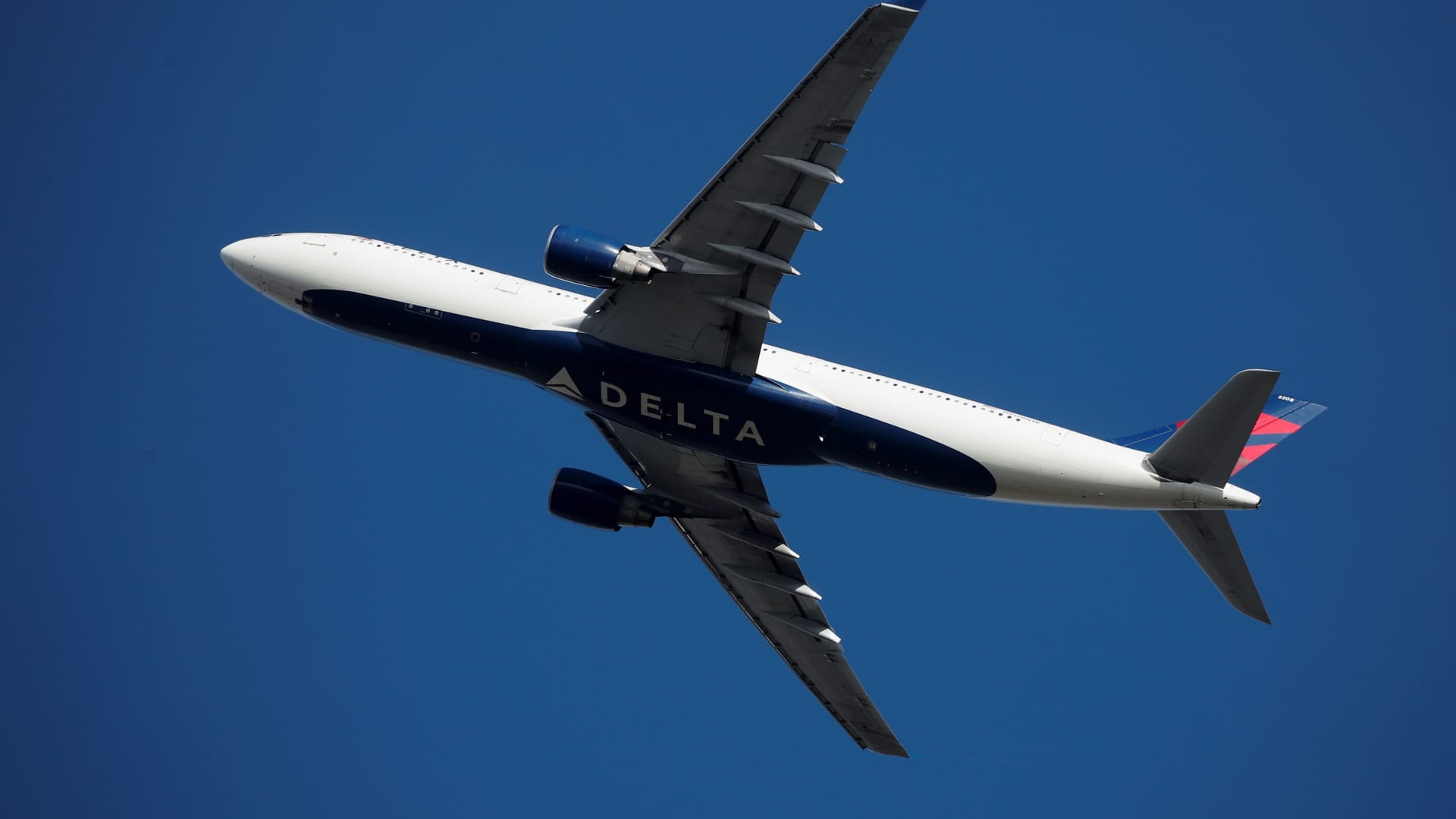Delta Air Lines on Wednesday reported a quarterly profit thanks to travelers willing to pay up to fly, more than making up for higher costs.
The carrier also vowed to improve reliability after an increase in delays and cancellations prompted it to scale back its summer schedule.
Delta said its third-quarter capacity would be 83% to 85% of 2019 levels, suggesting the carrier is sticking with a conservative schedule compared with some rivals. Delta expects a third-quarter profit and reiterated its forecast for full-year profitability.
It expects to see third-quarter sales 1% to 5% higher than three years ago, along with higher costs.
“I would like to thank our entire team for their outstanding work during a challenging operating environment for the industry as we work to restore our best-in-class reliability,” CEO Ed Bastian said in an earnings release.
Delta is the first U.S. airline to report earnings this quarter. United Airlines and American Airlines report next week.
Here’s how the company performed in the second quarter compared with what analysts expected, according to average estimates compiled by Refinitiv:
- Adjusted earnings per share: $1.44 versus $1.73 expected.
- Revenue: $13.82 billion versus $13.57 billion expected.
Executives for Delta and its fellow airlines will face questions from investors about a rocky peak travel season. Staffing shortages have exacerbated routine issues like bad weather, driving up the rates of flight cancellations and delays.
Over the key July Fourth holiday weekend, Delta allowed travelers to change their flights without paying a difference in fare, an unusual waiver that the airline said would allow customers to avoid potential avoid flight disruptions.
Airlines executives and the Federal Aviation Administration have blamed each others’ staffing issues for contributing to the delays. Transportation Secretary Pete Buttigieg publicly admonished airlines for not being prepared for summer travel.
Despite those issues, demand rose for both business and leisure travel, Delta said. Domestic corporate travel sales are 80% recovered from before the pandemic, up 25 percentage points from the first quarter of the year, it said.
Delta’s costs for each seat it flew a mile, excluding fuel, were up 22% from 2019 for the three months ended June 30. Its fuel expense rose 41% from three years ago to $3.2 billion.
A surge in travel demand helped the airline post $735 million in net income. In a measure of how high fares have risen, Delta flew 18% less capacity in the second quarter than it did in the same period of 2019, but it generated $13.82 billion in revenue, 10% more than three years ago.
Revenue for domestic travel was 3% higher, Delta said, noting it also logged improvements in trans-Atlantic travel.
Delta and other airlines have been comparing their results to 2019 to show their progress in getting back to pre-pandemic performance.
Delta executives will discuss results with analysts and media at 10 a.m. ET Wednesday.
